After a day in Calaveras County, home to the world-famous frog-jumping contest inspired by Mark Twain’s story, we drive west to the island of Alameda, California, to interview Frank Ghiglione, who has his own frog-jumping story. He tells us the story over dinner at Gold Coast Grill, a comfortable, old-school Alameda restaurant where he eats at least weekly. “If I didn’t show up on Thursday,” Ghiglione jokes, “they would have thought I died.”
Five years ago Ghiglione and friends bought several Alameda frogs to enter in the Calaveras County contest. What were their names, I ask, thinking the names might rival that of record holder (21 ft., 5 3/4 inches) Rosie the Ribeter. Ghiglione quips, “Losers is what I call them.”
The Alameda frogs, he says, had no chance against behemoths from Africa. It was like pee wee football players—70-pound first graders—facing off against NFL All Stars. “My frog,” he says, “almost had a heart attack.”
But I want to talk to Frank about family, not frogs. The first generation of my immigrant Ghiglione family—Angelo and Maria—came to the United States from the Genoa area around 1870. Frank Ghiglione’s grandparents—Angelo (1873-1944) and Mary (1883-1953)—came from the Genoa area a decade later, recalled Louis, the youngest of their seven children, during a 1979 telephone interview. “He was a laborer who worked as a truck farmer 20 hours a day,” Louis said of Angelo, his father. “Then he bought a share in the property [a truck farm in Alameda], and later he bought the whole thing.”
The two Ghiglione families followed different careers—pasta making vs. farming—but they and many of their descendants have insisted on starting their own businesses and being their own bosses. Angelo sold his farm’s beans, squash, tomatoes and other fruits and vegetables from his cart. Later he bought two San Francisco apartment houses and developed Oakland property, naming streets after the first four of his seven children. Many of those children began businesses in other fields. Why do so many immigrants and their children and grandchildren become entrepreneurs?
Frank, grandson of Angelo and Mary, is a good person to ask, because he owns Rodgers Trucking of San Leandro, California, which employs 168 people. At first he answers my questions with jokes. Ask him how long he has been wed to his wife, Winifred, and he says almost five decades, but claims actress Meg Ryan has been his girlfriend for years. “Unfortunately,” he adds, “we’ve never met.” Explaining the success of his marriage he says, “There are two theories to arguing with women. Neither one works.”
Frank did not inherit his trucking company. Frank C., his father, “the picture of health,” who worked as a pipe fitter on Navy ships and then started The Club BaBaLu cocktail lounge with a brother, died of a cerebral hemorrhage at age 42. So Frank, while a student at the University of San Francisco, worked summers at Southern Pacific Motor Trucking and agreed to work at the trucking firm following graduation for five years in exchange for the firm’s paying for his last year at USF. By age 32—“young enough to be dumb enough to do it”—he bought his own trucking company.
Frank exhibits many old-world values. He celebrates his wedding on Columbus Day, gives generously to Alameda city youth and other charities, regularly visits family graves at Holy Sepulchre Cemetery in Hayward (“I spend $7,500 a month on flowers”), enjoys the memory of learning to play the accordion “because it was an Italian thing” and describes growing up with his stern, single-parent mother as “fortunate.” Some of those old-world values may explain his entrepreneurial streak. At 74, he jokes about his hours at work—“half a day everyday—5 to 5.”
Hard work, however, does not alone explain his success. He says the Ghiglione always have insisted on being independent—on not relying on others to sustain them. He, like his immigrant grandparents who risked virtually all by coming to the United States, takes risks. But reasonable risks. In the ‘80s he and four partners, including George Spanos of Stockton, invested $250,000 each in the purchase of Stockton’s Weber Ranch and built 140 homes there that sold well. His fondness for automobiles, beginning with a ’38 Chevy, shows in a collection of 33 favorite cars jammed in a warehouse that has a relevant sign next to its door: “Caution: Adults at Play.” Such impeccably restored cars—including a 1935 Auburn Speedster—have been known to appreciate in value.
Frank Ghiglione, in typical fashion, refuses at first to provide a straight answer to a question about his life today. “All my days are wonderful,” he jokes. “Nothing ever goes wrong in business.” But he leaves the impression that wonderful days far outweigh woeful ones.
Loren Ghiglione




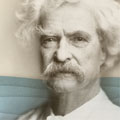

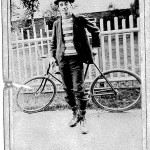



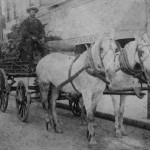



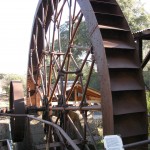





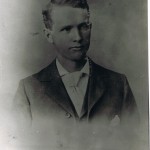





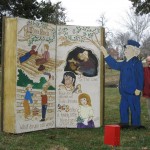

I was lucky enough to be able work for Rodgers Trucking shortly after High School & to this day I have the ultimate respect for Frank Ghiglione & hope one day I will be able to thank him for the work ethic & responsibilty to fulfill your duty that I learned while valuing Frank as a mentor. Unfortunately for me I relocated to Idaho after 15 yrs. with Rodgers Trucking in pursuit of a better residency area with less crime which I found but to this day I still find myself waking in the morning ready to report to Rodgers Trucking. I am presently a Foreman in the Track Dept. at BNSF Railroad & have a wonderful family & a beautiful home on mountain property in North Idaho & feel like I owe alot of my sucess to Frank. Thanks for reading this & I hope you are in a position to pass this along because he deserves it. I hope this might get back to Frank because he definately had a very positive rewarding impact on my life. Sincerely, Darren Molder